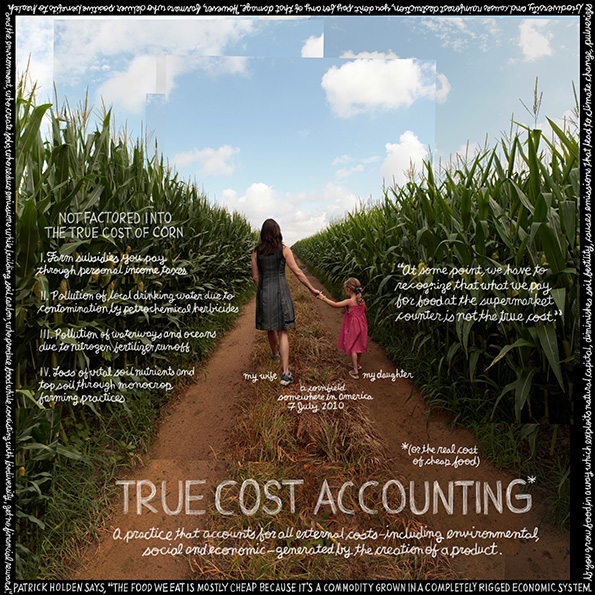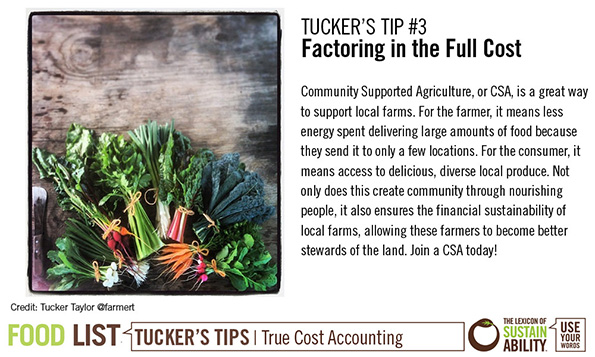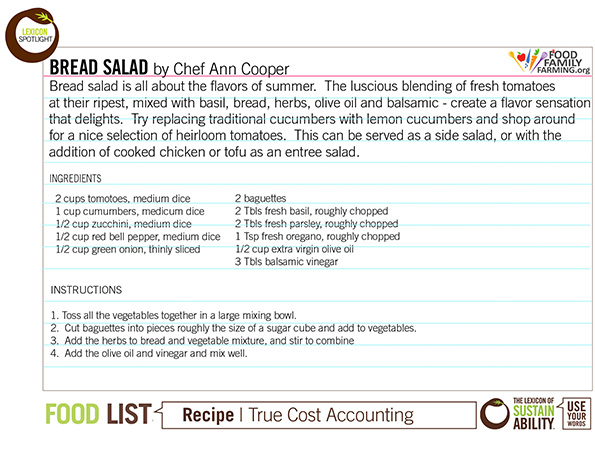
What's the real cost of cheap food? A principle called #TrueCostAccounting can help you understand. @lexiconproject
True Cost Accounting (a.k.a. The Real Cost of Cheap Food): What’s not factored into the true cost of corn? Farm subsidies you pay through your personal income taxes; pollution of local drinking water due to contamination by petrochemical herbicides; pollution of waterways and oceans due to nitrogen fertilizer runoff; and loss of vital soil nutrients and top soil through mono crop farming practices. All of these are hidden costs.
By considering all the external costs factored out of the cost of food, an economic principle called true cost accounting can help you understand the real cost of the food you buy.

Title: True Cost Accounting
Location: A corn field, somewhere in America
Featuring: Laura Howard-Gayeton and Tuilerie Gayeton
Image Credit: Douglas Gayeton for the Lexicon of Sustainability
Short film: "A Day in the Life" by The Perennial Plate
Watch the story of food, labor, and community in America unfold in this short film featuring Jason Woods—a fisherman/diver on fire for the cause of sustainable seafood and local economies—and Alberta Salazar, a former strawberry laborer from Oaxaca.
True Cost Accounting at the Farm from Tucker Taylor

"If someone were to complain about how much I was charging for my produce, I would normally explain that, while we were building soils in the early stages, our yields were not quite as large as that of a conventional farmer," says Tucker Taylor, an expert in certified organic farming, specialty produce, and sustainability.
"[Now I understand] that true cost accounting includes the health, social and environmental costs. I also understand that we are providing a livelihood for the crew by paying them a living wage. Not only that, we are caring for an entire ecosystem by building soils, increasing plant diversity and, as a result, increasing animal diversity."
Recipe: Bread Salad by Chef Ann Cooper
Put true cost accounting into action with this veggie-rich, farm-fresh recipe from Chef Ann Cooper.

Once you factor back in all the external costs related to your food, the "cheap" option doesn't look so cost-effective anymore. How do you factor the principle of true cost accounting into your own food budget? Why are you willing to spend more on food that is sustainably produced?
Tell us on Twitter and Facebook, and follow us for more on true cost accounting throughout the week.
For the past three years, the Lexicon of Sustainability has sought out the foremost practitioners of sustainability in food and farming to gain their insights and experiences on this important subject. What began as a photography project to spread their knowledge has grown to include short films, study guides, traveling shows, a book, and a website where people can add their own terms to this ever-evolving lexicon. See more at www.lexiconofsustainability.com.
